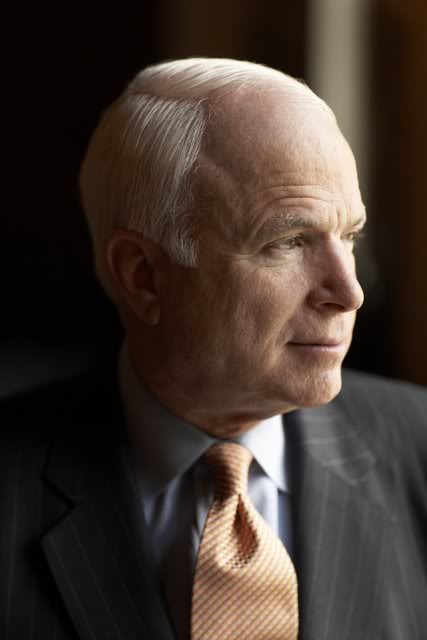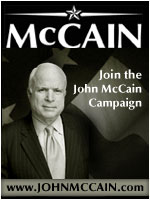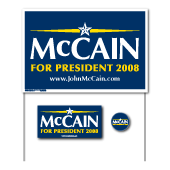John McCain on Iraq
John McCain (Photo)
John McCain speaks on Iraq in a speech on April 11, 2008 at the Virginia Military Institute.
“Many in Washington have called for an end to our involvement in Iraq. Yet they offer no opinion about the consequences of this course of action beyond a vague assurance that all will be well if the Iraqis are left to work out their differences themselves. It is obviously true that no military solution is capable of doing what the Iraqis won’t do politically. But, my friends, no political solution has a chance to succeed when al Qaeda is free to foment civil war and Iraqis remain dependent on sectarian militias to protect their children from being murdered.
“America has a vital interest in preventing the emergence of Iraq as a Wild West for terrorists, similar to Afghanistan before 9/11. By leaving Iraq before there is a stable Iraqi governing authority we risk precisely this, and the potential consequence of allowing terrorists sanctuary in Iraq is another 9/11 or worse. In Iraq today, terrorists have resorted to levels of barbarism that shock the world, and we should not be so naive as to believe their intentions are limited solely to the borders of that country. We Americans are their primary enemy, and we Americans are their ultimate target.
There’s so much good stuff in this speech that I have a difficult time picking out parts to highlight. But how about this section:
“What struck me upon my return from Baghdad is the enormous gulf between the harsh but hopeful realities in Iraq, where politics is for many a matter of life and death, and the fanciful and self-interested debates about Iraq that substitute for statesmanship in Washington. In Iraq, American and Iraqi soldiers risk everything to hold the country together, to prevent it from becoming a terrorist sanctuary and the region from descending into the dangerous chaos of a widening war. In Washington, where political calculation seems to trump all other considerations, Democrats in Congress and their leading candidates for President, heedless of the terrible consequences of our failure, unanimously confirmed our new commander, and then insisted he be prevented from taking the action he believes necessary to safeguard our country’s interests. In Iraq, hope is a fragile thing, but all the more admirable for the courage and sacrifice necessary to nurture it. In Washington, cynicism appears to be the quality most prized by those who accept defeat but not the responsibility for its consequences.
“Before I left for Iraq, I watched with regret as the House of Representatives voted to deny our troops the support necessary to carry out their new mission. Democratic leaders smiled and cheered as the last votes were counted. What were they celebrating? Defeat? Surrender? In Iraq, only our enemies were cheering. A defeat for the United States is a cause for mourning not celebrating. And determining how the United States can avert such a disaster should encourage the most sober, public-spirited reasoning among our elected leaders not the giddy anticipation of the next election. Democrats who voted to authorize this war, and criticized the failed strategy that has led us to this perilous moment, have the same responsibility I do, to offer support when that failure is recognized and the right strategy is proposed and the right commanders take the field to implement it or, at the least, to offer an alternative strategy that has some relationship to reality.
You can read the rest of the speech and McCain’s other speeches at his website.
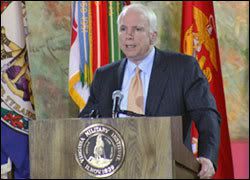
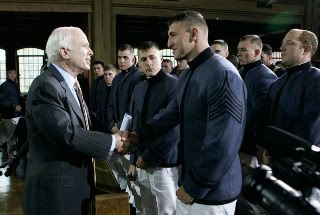
John McCain (Photos)
McCain on Iraq (Video)
